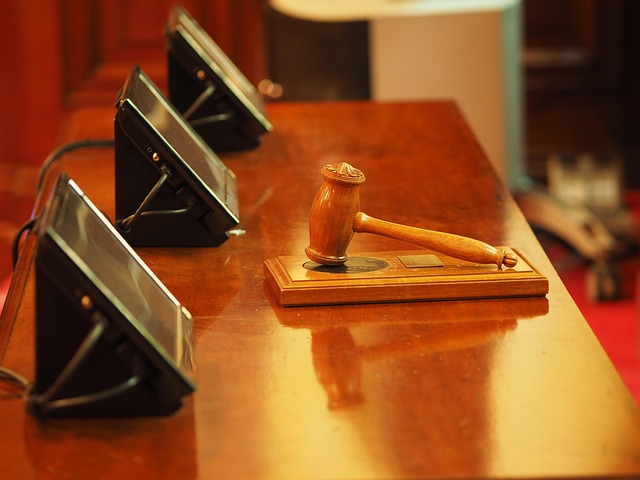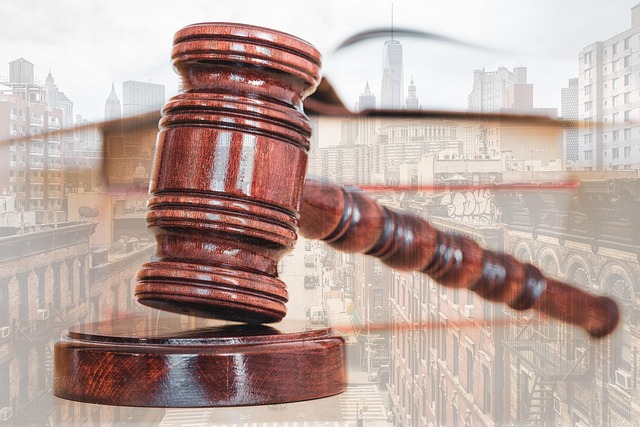RF Regulatory Agency investigations are crucial for maintaining RF standards, addressing violations like unauthorized transmissions or equipment exceeding limits, which can lead to significant outcomes including class action lawsuit settlements. This process involves a detailed review of facts, evidence, and legal precedents. Specialized knowledge about RF regulations is vital for navigating these cases, ensuring rights are protected and settlements reflect fairness. Regulatory agencies safeguard consumers and businesses from radiation exposure and unfair practices, enforcing compliance through penalties or facilitating class action lawsuits. During investigations, they examine RF devices and practices for safety, emission levels, and adherence to standards, leading to potential warnings, fines, or settlements with far-reaching implications. The class action lawsuit settlement process plays a critical role in holding businesses accountable, offering compensation, justice, and deterrence for future violations.
RF Regulatory Agency Investigations play a pivotal role in ensuring compliance with wireless communication standards. These agencies, tasked with upholding regulatory frameworks, conduct thorough inquiries into suspected violations. From understanding the process to its impact on industries, this article offers insights into how these investigations unfold and their potential outcomes, including the growing prevalence of Class Action Lawsuits and Settlement Processes Explained.
- Understanding RF Regulatory Agency Investigations
- The Role of These Agencies in Ensuring Compliance
- What Happens During an Investigation?
- Impact and Outcomes: Class Action Lawsuits and Settlements
Understanding RF Regulatory Agency Investigations

RF Regulatory Agency Investigations play a crucial role in ensuring compliance with radio frequency (RF) standards and regulations. These inquiries are often triggered by suspected violations, such as unauthorized transmissions or equipment that exceeds established limits. When an investigation uncovers significant issues, it can lead to notable outcomes, including Class Action Lawsuit Settlements. This process involves a thorough examination of the facts, evidence, and legal precedents, ultimately aiming for a mutually agreeable resolution.
An unprecedented track record of winning challenging defense verdicts in RF cases underscores the importance of robust legal representation during such investigations. While general criminal defense strategies may apply, specialized knowledge about RF regulations is essential to navigate these complex inquiries effectively. This ensures that rights are protected and any settlement reflects a fair understanding of the unique circumstances at play.
The Role of These Agencies in Ensuring Compliance

Regulatory agencies play a pivotal role in ensuring compliance with radio frequency (RF) standards across various industries. These organizations are tasked with investigating potential violations, ranging from equipment safety to interference issues, thereby upholding the integrity of RF technology. By conducting thorough examinations, they safeguard consumers and businesses alike, preventing harmful radiation exposure and ensuring fair market practices. In cases where non-compliance is found, these agencies have the authority to enforce penalties, issue warnings, or even facilitate a Class Action Lawsuit Settlement Process Explained, which can lead to significant financial remedies for affected parties.
Their oversight extends to both general criminal defense scenarios involving RF devices and complex corporate matters. Through diligent investigation, they help secure winning challenging defense verdicts, ensuring that businesses adhere to the law. Moreover, these agencies cater to a diverse range of clients, including individual consumers and large corporations, providing a balanced approach to regulation. This comprehensive oversight is essential in maintaining a safe and competitive RF landscape, fostering innovation while protecting public interest.
What Happens During an Investigation?

During an RF Regulatory Agency investigation, a thorough examination of an entity’s radio frequency (RF) devices and practices takes place. The process involves gathering evidence, reviewing documentation, and interviewing personnel to ensure compliance with relevant RF regulations. Often, investigations stem from complaints or suspicions of non-compliance, leading to an in-depth analysis of the company’s operations. Key aspects under scrutiny include device safety, emission levels, and adherence to industry standards. If violations are found, the agency may issue warnings, fines, or even initiate a class action lawsuit settlement process explained as a form of redress for affected parties.
The investigation’s outcome can have significant implications, especially if the allegations lead to criminal charges or white collar defense strategies. Across the country, these cases often spark public interest and media attention due to their potential impact on consumer safety and industry standards. The complex nature of RF regulations requires meticulous navigation, ensuring that companies are held accountable while also fostering innovation within the industry.
Impact and Outcomes: Class Action Lawsuits and Settlements

The impact of RF Regulatory Agency (RFRA) investigations can extend far beyond financial penalties and corrective actions. One significant outcome is the class action lawsuit settlement process, which plays a crucial role in holding respective businesses accountable for their actions. These high-stakes cases often result from alleged violations of consumer rights or environmental regulations. The settlement process involves mediation and negotiations between affected consumers or communities and the respective business, aiming to reach a mutually agreeable compensation package.
Class action lawsuits settlements can have far-reaching effects, providing redress to a large number of individuals or entities that may have been harmed by an RFRA violation. The monetary compensation offers a sense of justice for those affected, while also serving as a powerful deterrent for future non-compliance in similar high-stakes cases. Effective settlement agreements ensure that businesses take responsibility for their actions and make amends, fostering a more transparent and accountable regulatory environment.
RF Regulatory Agency investigations play a pivotal role in maintaining compliance within the radio frequency (RF) spectrum, ensuring fair practices, and protecting consumers. These agencies act as watchdogs, meticulously examining potential violations and their impact. The process involves a thorough review of evidence, interviews, and data analysis, ultimately leading to either no action or formal inquiries. In cases of significant issues, investigations can result in Class Action Lawsuits and Settlements, where affected parties collectively seek redress for harm caused by RF spectrum misuse. Understanding the investigation process and its potential outcomes is crucial for businesses operating within this domain, emphasizing the importance of proactive compliance measures.






